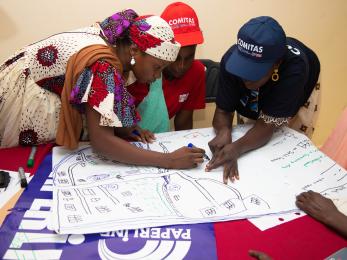Seeking Stability: Evidence on Strategies for Reducing Risk of Conflict in Northern Jordanian Communities Hosting Syrian Refugees

Despite the heightened attention to conflict in Jordan stemming from the Syrian refugee crisis, little evidence exists on which interventions are effective in mitigating the risk of violence and further instability. In addition, the literature on contemporary Jordanian society, the complexity of its many tribal dynamics, as well as the local communities' relationships with the national government - particularly in recent years - remains thin. Thus, many aid actors lack sufficient information about the changing nature of problems and tensions in host communities or how best to operate within this context, even if not directly addressing these challenges.
In May 2014, Mercy Corps undertook a comprehensive study to futher deepen the knowledge base and to help the aid community to address more sensitively and effectively the sources of tension and destabilizing factors identified in the first report. The research indicates that conflict mitigation programs such as Mercy Corps' model can help preclude conflict by building and strengthening the mechanisms and relationships needed for communities to address disputes non-violently. The results provide insights into the major drivers of conflict between Jordanian host communities and Syrian refugees, and help identify empirically grounded leverage-points for addressing them.


